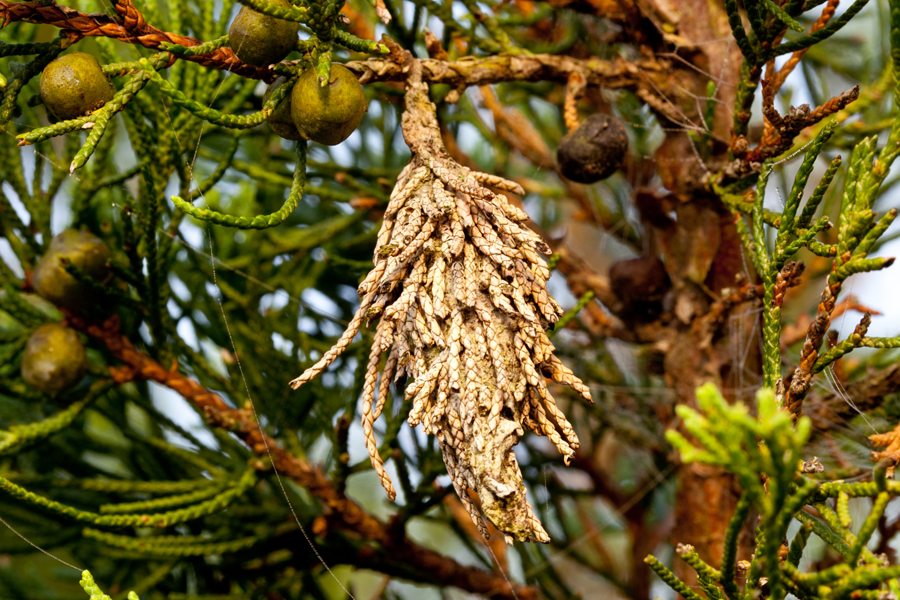Ask the Expert: What’s That Up in Your Trees?

This year I am seeing many plants and trees being infested with Bagworm. This is the larval stage (caterpillar) of a moth, and part of the family of the Lepidoptera, which comprises both butterflies and moths. This insect is able to feed on over a 100 different woody plants, attacking both deciduous and evergreen trees.
Bagworm favor narrow needle trees such as the arborvitae (Thuja), fir (Abies), hemlock (Tsuga), juniper (Juniperus), pine (Pinus) and spruce (Picea), however they are found on many other plants. This Japanese maple tree is fully infested with a late stage caterpillar.
At this stage the insect is almost done feeding and by the end of August the majority of the population will be entering into their pupae stage. They will stay in the closed bag for about four weeks, at which time the female will release a pheromone, which attracts the males to her. The female then lays up to a 1,000 eggs into the bag, where they will over winter, hatching the next spring to start the cycle over again.
If this insect is detected early, there are a number of good control options. There are biological pesticides that can be used in the early stages of the caterpillar’s development, along with many conventional pesticides.
If bagworm infestations are not noticed until late summer, not only will their numbers be higher but the bagworms will have aged enough to make them more difficult to kill with an insecticide. At this point a good control would be to pick the insect off by hand and dispose of the pest. This will control the pest to an acceptable level as long as the insect is destroyed before the new generation hatches in the spring.
Fox Tree Service president Bart L. Fusco is a Certified Arborist and Registered Consulting Arborist. For questions about protecting the trees in your yard and other tree-care information, you can contact Fox Tree Service in Suffolk at 631-283-6700, and in Nassau at 516-921-7111, or visit online at foxtreeservice.com.
GET MORE ADVICE FOR YOUR TREES FROM BART L. FUSCO AND FOX TREE SERVICE HERE.



